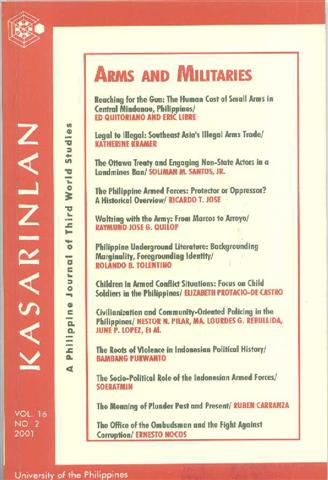The Meaning of Plunder Past and Present
Abstract
Plunder, as a word and as a crime, is a very recent addition to the Filipinos' consciousness and vocabulary. It took former presidents Ferdinand Marcos and Joseph Estrada and half a trillion in stolen money for plunder to assume special significance. Making people aware and defining the crime is the easy part. Putting plunderers behind bars is harder. From the creation of the Presidential Commission on Good Government (PCGG) 1987 to the signing of the Anti-Plunder Law in 2001 not one of the Marcos family or the Marcos cronies have spent a day in jail. This is because they have employed an army of the country's most brilliant lawyers, first, to hide the ill-gotten wealth and, later, to flood the courts with motions that delaytrial. On the other hand, the present PCGG has only 11 lawyers handling 400 cases. The inherent complexity of litigation and the notorious slowness of the court system do not help. Some of the more successful cases took 10 years to drift from filing
to ruling. And even if litigation prospers, a president, as in the case of Estrada, can slow down the process further by reducing the PCGG budget and finding a way to secure a pro-crony compromise agreement or even return the ill-gotten wealth to
the rightful thieves. The present leadership appears to be more dedicated in pursuing plunderers. Punishment just come swiftly so that Filipinos will not forget and plunder will not become a meaningless word in the vocabulary.
How to Cite
CARRANZA, Ruben.
The Meaning of Plunder Past and Present.
Kasarinlan: Philippine Journal of Third World Studies, [S.l.], v. 16, n. 2, sep. 2007.
ISSN 2012-080X.
Available at: <https://journals.upd.edu.ph/index.php/kasarinlan/article/view/1651>. Date accessed: 17 sep. 2025.
Section
Forum
By submitting a manuscript, the authors agree that the exclusive rights to reproduce and distribute the article have been given to the Third World Studies Center.



